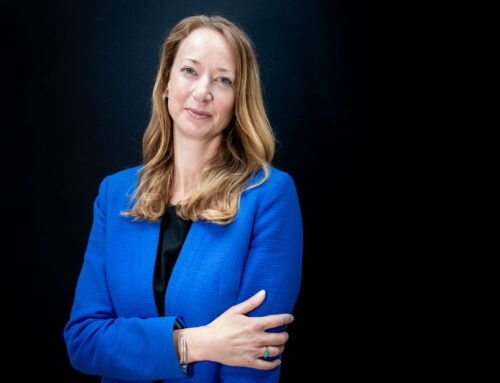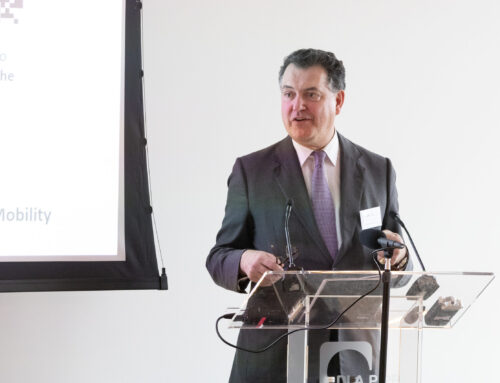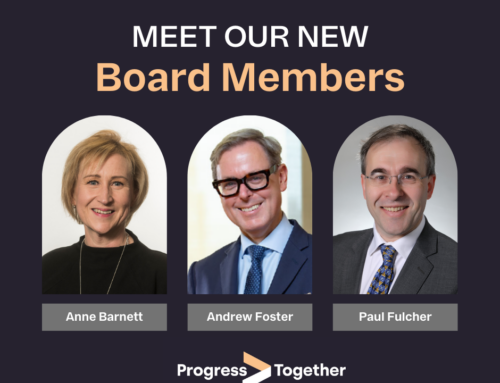Walking 2.5 miles to school in second-hand clothes that were falling apart, Adrian Matthews never dreamed he would end up as a C-Suite executive.
But those childhood memories of going hungry, having no hot water and living on the breadline shaped Adrian and instilled in him a drive to succeed.
Adrian is now Chief Operating Officer for Chubb Continental Europe, Middle East and North Africa, after working his way up the insurance ladder.
Poverty chain
Born and raised in a disadvantaged area of Liverpool, Adrian’s family lived hand to mouth, with constant worry about not being able to afford food or rent.
Adrian said: “It was a very tough neighbourhood. There was always a lot of fighting during and after school and it that’s just the neighbourhood we lived in. My dad was all about toughening you up and was an extreme disciplinarian.
“But even in a poor neighbourhood, I knew we had very little. We were at the bottom of the poverty chain.”
The son of a teenage mum and an odd-jobbing dad, Adrian remembers his childhood with a sense of uncomfortable nostalgia.
He said: “The clothes I had were mainly either second hand or knitted by my grandmother. I would wear shoes until they were just too tight and falling apart.
“My mum couldn’t afford the actual school blazer, so she’d buy a similar-looking blue jacket and then she’d sew the school badge on it.”
Aspirational
However, being an avid reader and academically focussed, Adrian saw a route out of poverty through education. His parents were aspirational for their five children and were keen to ensure they made the most of opportunities.
After gaining seven O-Levels, Adrian stayed at school for sixth form and gained four A levels following which his extended family helped provide books, boarding and fees so he could go to Leeds University to study English.
After university, Adrian fell into insurance by chance, after applying to roles in several industries and being accepted into an insurance company because he liked the fact that they had established their UK headquarters in Liverpool.
Imbalance
As he gained more experience, Adrian noticed an imbalance between people from higher and lower socio-economic backgrounds.
He said: “I have to admit that there was probably a chip on my shoulder with people who were from more well-to-do environments.
“I felt like I was at least on a par with them but that they had a certain advantage from their background that I had to compete with.
“A number of scousers I knew at University, would drop their accent when they were in job interviews. My dad didn’t allow me to bring my “street accent” into the house and told me I would be judged by how I spoke. This prepared me for the work environment and I would be careful with how I spoke when I was in meetings as I knew my intelligence would be judged by how I spoke. There was undoubtedly a stigma attached to having a regional accent and, sadly, that unconscious bias still exists today.”
Opportunity
Despite the barriers he faced, Adrian used his natural confidence and self-belief to apply for promotion opportunities, moving to the US where his career started to blossom and he was offered more senior roles, leading eventually to a COO position in Paris.
Now living in London, and in a C-Suite role, Adrian ensures that he offers help to others in a similar position to his when he was starting out.
He said: “I’ve never really had a mentor but I have come to realise that they are vitally important in managing your career. You can of course rise above your environment, but you can go a lot further if others are looking after your interests. It’s about giving people an opportunity to realise their ability.”
Adrian’s advice to businesses:
- Inequity is still prevalent in financial services. Don’t pay lip service, don’t brush it off. When you say you want honest feedback, be prepared to listen and accept that feedback.
- Financial services firms should stop simply talking about socio-economic diversity and actually do something about it. And that starts with being open to honest criticism
- Create forums where people can speak candidly about their experiences
- Leadership must act. It’s incumbent on leaders to pull people from lower socio-economic backgrounds up with them, just as it is incumbent on men to pull women up
- Give more power to HR departments so they can be impartial and bring along talent from all socio-economic backgrounds
- Provide mentors for people from all socio-economic backgrounds so that everyone can realise their potential and build networks




